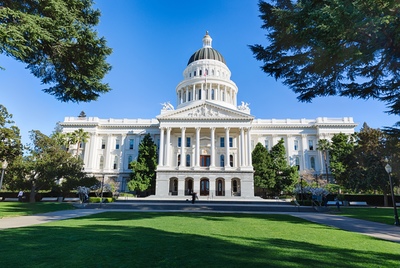
Compliance
How States Are Using AI for Compliance Enforcement in 2026
February 20, 2026 | Bradley Coffey
June 23, 2025 | Dylan Busler

Key Takeaways:
On January 21st, 2010, the Supreme Court issued a ruling in Citizens United v. Federal Election Commission that disallowed prohibitions on independent expenditures by corporations. As a result of this decision, in each of the Federal elections that have followed, independent expenditures have increasingly become the choice instrument of corporations to support their preferred candidates and platforms. But with that influence comes responsibility, and failure to comply with Federal regulations may lead to serious consequences. Review this checklist for a quick overview of what to expect when making independent expenditures.
Before committing your organization to making an independent expenditure, it is important that you understand what distinguishes it from other forms of political activities.
First, independent expenditures are forms of express advocacy, which is any communication that explicitly advocates for the election or defeat of a clearly identified candidate. (11 CFR 100.16). The FEC provides two ways in which a communication may meet the definition of express advocacy: by the use of certain “magic words” (Buckley v. Valeo, 1976) and by the “only reasonable interpretation” test (11 CFR 100.22).
Secondly, independent expenditures are made without any coordination occurring between the person making the expenditure and the candidate or their campaigns (11 CFR 100.16). This is the most fundamental distinction between independent expenditures and other forms of contributions; if any coordination does occur, then the expenditure is not considered independent and is instead treated as a political contribution, which is prohibited for independent expenditure committees. If your organization is planning on making independent expenditures, it is essential that you avoid any coordination with candidates and their committees.
Individuals and corporations making independent expenditures using their own funds are not subject to any registration requirements with the FEC. However, a person making independent expenditures who begins to raise funds will be required to register with the FEC within 10 days after their contributions or expenditures exceed $1,000 in a calendar year. To register as an independent expenditure committee (also known as a Super PAC), you will need to file a Statement of Organization (Form 1) and have the following prepared:
Treasurer
Custodian of Records
Assistant Treasurer (This is not a requirement, but is strongly encouraged)
Bank Account
Most independent expenditures are for the purpose of disseminating public communications that advocate on behalf of a specific electoral outcome. Public communications, when funded by independent expenditures, must include a disclaimer statement, whether it be printed, advertised digitally, or spoken on radio or television, with few exceptions (11 CFR 109.11).
Generally, these disclaimers must identify the person(s) who funded the communication, and indicate whether any candidate or candidate’s committee authorized the communication. However, beyond these statements, there are specific wording and visibility standards that must be met in order to satisfy the disclaimer requirement, depending on the form of media used (11 CFR 110.11). It is best to review all applicable regulations when including a disclaimer on your public communication.
Anyone planning to participate in federal elections should understand the importance of maintaining accurate records, especially those making independent expenditures. Unlike most political contributions, which are often reported on a cash basis, independent expenditures must be reported on an accrual basis. This means you may trigger registration or reporting requirements as soon as you contract to make an expenditure, even before any funds are actually spent.
Independent expenditure filers are also required to itemize and report all costs incurred in connection with the expenditure, not just the cost of disseminating the communication. This includes production costs, staff time, consulting fees, and any other related expenses. Any person planning to make independent expenditures should be fully prepared to track and report all such costs before engaging in activity that could exceed the reporting threshold.
As with any political committee registered with the FEC, persons making independent expenditures (whether registered as a committee or not) are subject to filing requirements. If you are making independent expenditures, however, your activity may trigger more than one type of report. Knowing the different report types, thresholds, and their schedules is essential for any person planning to make independent expenditures.
Quarterly Reports - Filed at the end of the first quarterly reporting period in which aggregate independent expenditures exceed $250.
24 Hour Reports - Filed 24 hours after making an independent expenditure of $1,000 or more within 20 days of an election.
48 Hour Reports - Filed 48 hours after making an independent expenditure of $10,000 or more up to 20 days before an election.
Though independent expenditures and Super PACs are exempt from certain restrictions imposed on other committee types, such as contribution limits, there are still many restrictions that apply equally. For instance, the prohibitions imposed on political contributions by foreign nationals (52 U.S.C. § 3012) and federal contractors (11 CFR § 115.2) also extend to those making independent expenditures and contributing to Super PACs. Whether you are making independent expenditures or raising funds to do so, it is critical that you are aware of and avoid all prohibited activities.
Keeping up with rules, deadlines, and often confusing requirements is a daunting prospect for teams of all sizes. Let us manage your federal, state, and local registration and reporting responsibilities, or manage your Campaign Finance program. Read more about our Compliance Services here, or get in touch here.

February 20, 2026 | Bradley Coffey
-328a36-400px.jpg)
February 20, 2026 | Kelly Cox
-8748f6-400px.jpg)
February 19, 2026 | Izzy Aaron